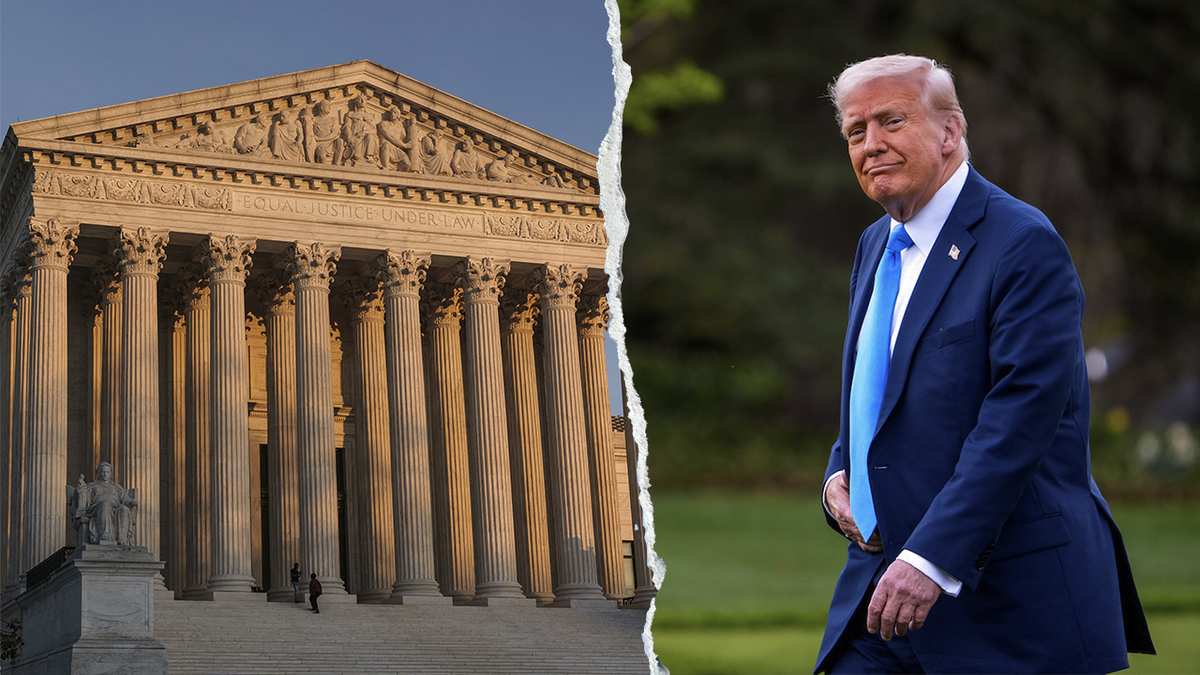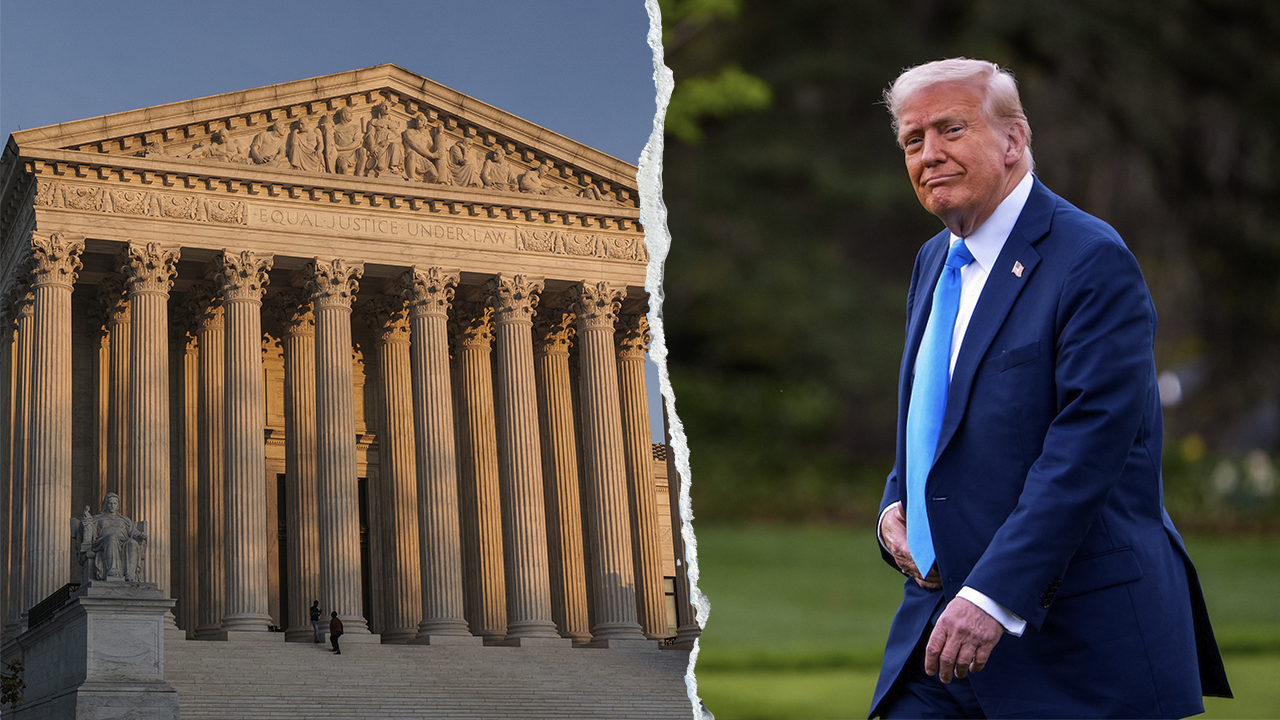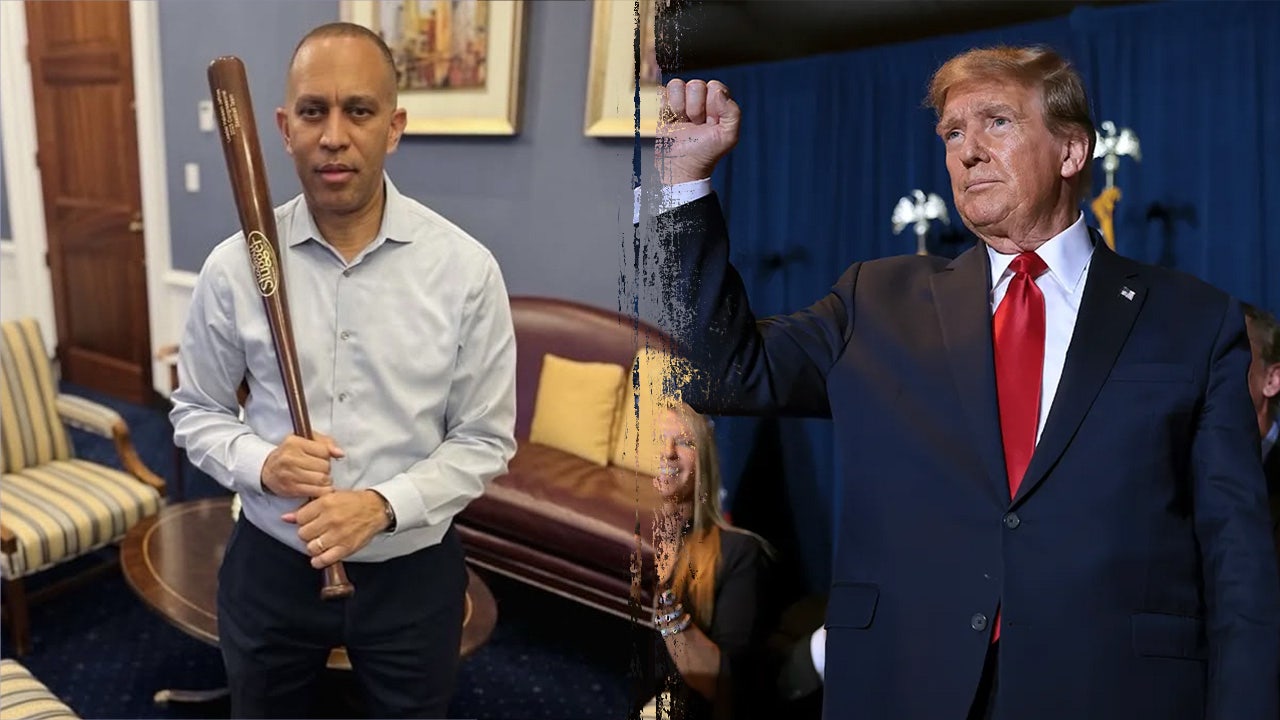
NEWYou can now listen to Fox News articles!
Some federal trial judges have thrown opposition to President Donald Trump’s immigration agenda into high gear. They seek to trigger a confrontation between the president and the Supreme Court despite efforts by both to compromise. Worse yet, they are drawing the federal courts beyond their areas of competence and interfering with the president’s authority in foreign affairs and national security. The justices should step in to make clear that federal courts must pay due deference to the executive’s constitutional responsibilities, while President Trump should re-affirm that even illegal aliens receive due – albeit limited – process.
The latest salvo came this week from Maryland federal Judge Paula Xinis, who is hearing the case of Kilmar Abrego Garcia, an illegal alien whom the Trump administration mistakenly sent to El Salvador. Earlier this month, Xinis had commanded the Trump administration to immediately produce Garcia in court, even though he was no longer under the control of the United States. Her rash order prompted the Supreme Court to intercede. The justices called upon the Trump administration to “facilitate” Garcia’s return, and to inform the trial court of its efforts, but also cautioned Xinis to pay “due regard for the deference owed to the Executive Branch in the conduct of foreign affairs.”
The Supreme Court’s order should have headed off a crisis between the President and Judge Xinis. It followed a similar move by the justices in reviewing Judge James Boasberg’s ruling that the Trump administration had no authority to send 137 suspected Venezuelan gang members to El Salvador under the Alien Enemies Act of 1798. That laws allows the president to detain and expel citizens of a country with which we are at war or which launches an invasion or “predatory incursion” of the United States. Even though Boasberg and the D.C. Circuit Court of Appeals rushed to find that no declared war or invasion by Venezuela had occurred, the justices found that those courts had jurisdiction over the case, and held that the illegal aliens’ due process rights would have to be vindicated by federal judges in Texas or Louisiana, where they last had been present in the United States.
GORSUCH, ROBERTS SIDE WITH LEFT-LEANING SUPREME COURT JUSTICES IN IMMIGRATION RULING
The Supreme Court’s caution that lower court judges respect the president’s responsibility to conduct foreign affairs made for common sense. Federal courts cannot order the president to send special forces abroad to seize Garcia or anyone else held in El Salvador’s terrorist jails, nor can it dictate to the president how to conduct diplomacy. Nevertheless, Judge Xinis directed this week that the Trump administration “take all available steps” to return Garcia “as soon as possible.” On appeal, Judge J. Harvie Wilkins of the Fourth Circuit Court of Appeals excoriated the Trump administration for not cooperating with Judge Xinis and raised the possibility that the Trump administration could deport even U.S. citizens, claim error, but then do nothing to seek their return.
Despite Judge Wilkinson’s advice to both branches to reach a compromise, Judge Xinis has proceeded to command the Trump administration to explain, under oath, its diplomatic efforts to free Garcia.
This shows little respect for the caution, urged by the Supreme Court, not to intrude into the executive branch’s authority over foreign affairs. Will Xinis next demand that communications between the State Department and El Salvador be produced in open court? Will she sanction the government unless U.S. embassy staff travel to her Maryland courtroom and testify about their meetings with El Salvadorean officials? Perhaps she will want to set the United States negotiating positions and offers.
The deeper concern behind this single judge’s interference with the president’s conduct of foreign relations is the threat that wayward trial courts will begin to interfere with fundamental national security decisions that the Constitution vests in the presidency. A federal court has never before overruled the decision of a president or Congress that the United States has suffered an attack or invasion, and the Supreme Court wisely rejected the D.C. courts’ efforts to do so. Admittedly, the Trump administration is making the unprecedented claim that a gang has risen to the level of a foreign government that is conducting an invasion or predatory incursion into the United States. I have argued elsewhere that this would be a difficult showing to make and would depend on the facts of the Venezuelan government’s control over TdA and on whether international criminal activities can constitute a military threat to the national security.
But that is an entirely different question from whether the federal courts are the proper institution to make that judgment. The Supreme Court itself has long recognized that there are certain “political questions,” which the Constitution itself has committed to the final decision of the elected branches of government, such as impeachment or war. In Marbury v. Madison, which established the Court’s right of judicial review, Chief Justice John Marshall also declared that “the President is invested with certain important political powers, in the exercise of which he is to use his own discretion.” For his decisions, “he is accountable only to his country in his political character, and to his own conscience.” These issues “respect the nation, not individual rights, and being entrusted to the executive, the decision of the executive is conclusive.”
CLICK HERE FOR MORE FOX NEWS OPINION
CLICK HERE TO GET THE FOX NEWS APP
Courts have never second-guessed what is the most political of questions: whether the nation is at war. Federal judges have refused to rule on the constitutionality of not just the Iraq and Afghanistan wars, but also every war in American history. Courts do not have the ability, understanding, or expertise to make sensitive decisions on national security threats, nor can they judge the costs and benefits of different foreign policies. Courts decide cases and controversies in formalized legal settings driven by the parties; they should hesitate to make decisions involving the difficult probabilities and risks of war and national security.
What courts can do is provide a measure of due process to aliens before their deportation. The Trump Justice Department acknowledged this very principle before the Supreme Court in conceding that the Venezuelans had a right to due process before their deportation under the Alien Enemies Act as well as under the regular immigration laws. While the Supreme Court can force the lower courts to pay greater respect to the president’s authority in national security, the White House can also bring the controversy to a close by respecting the judiciary’s reading of the Due Process Clause to provide a hearing even to illegal aliens accused of serious criminal violence. Both branches owe it to the Constitution, and the American people, to come to a common sense understanding of the obligations imposed on the other to protect the national security while respecting due process.








